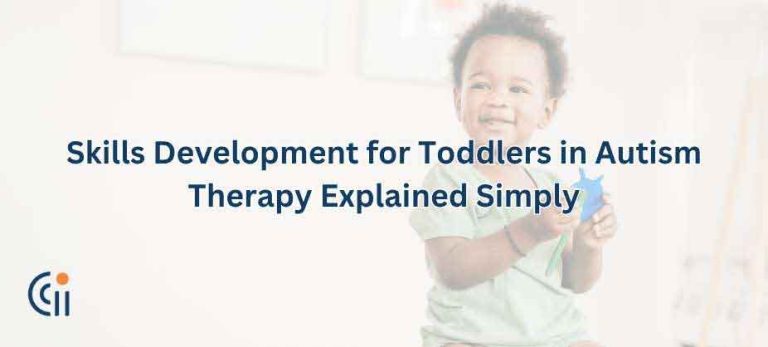Supporting a child with autism is a journey filled with milestones. One of the most significant is the transition from ABA therapy to school. This change can bring a mix of emotions for both parents and children, including excitement for new opportunities and concerns about adjusting to a different environment. At Circle City ABA, we understand the complexities involved in this transition. We dedicate ourselves to helping families navigate it smoothly. In this blog post, we’ll explore strategies to ensure a successful transition from ABA therapy to the school setting, providing your child with the tools and support they need to thrive.
What are the next steps?
After finding success in ABA therapy and services that help your child learn and thrive, the thought of transitioning to a new environment and starting school can be daunting. This resource aims to facilitate that transition, ensuring it is seamless and comfortable for you and your child!
Please note: This blog is for informational purposes only and is not to be considered as legal advice.
When will I know my child is ready for school?
Transition and discharge from ABA services will be an ongoing conversation between you and your Board Certified Behavior Analyst (BCBA) from the onset of services. Your BCBA will let you know through regular parent meetings when your child is nearing the time of transition into a school setting. This will allow you ample time to have appropriate support and accommodations in place for your child at school before they begin. This will make your child’s transition into a school setting smoother and more successful!
What is an IEP/504?
An Individualized Education Plan and 504 Plan are legal documents created by the educational team and parent to support your child through their academic experience. The difference between an IEP and a 504 plan is the need for specialized instruction. Children may learn academic subjects like their peers, but they may have social deficits that require specialized instruction, which requires an IEP. A 504 is less structured, but it still provides accommodations for the student who does not require specialized instruction.
Why is an IEP/504 important?
The federal law that governs these plans is called the Individuals with Disabilities Education Act (IDEA). This law ensures that your child receives a free and appropriate public education in the least restrictive environment needed for success. This also means that procedural safeguards protect your rights as a parent and your child’s rights as a student throughout their education. These plans are necessary for school to provide special education services.
IEP/504 Process
This process applies to most states but not all. For information about your specific state’s IEP/504 Process, please talk to your BCBA.
- You must enroll your child in your home school district before the process can begin.
- Request an evaluation in writing. It may be beneficial to request an FBA at this time. This is not a standard part of the evaluation.
- You sign the consent to evaluate, and the school has 50 instructional days (not calendar days) to complete the evaluation and hold the first case conference meeting.
- You should receive a copy of the evaluation at least 5 instructional days before the case conference. If you disagree with the findings, you have the right to request an independent educational evaluation.
- After the case conference, you have 10 instructional days to sign or provide a written opinion of contesting the IEP.
- The case conference committee meets annually or at your request, and they re-evaluate your child every three years. You can request an earlier evaluation if you need more information about providing services.
Tips for advocating for your child
Advocating for your child with autism as they transition from ABA therapy to school is crucial for ensuring they receive the support and accommodations they need to thrive. Effective advocacy involves clear communication, understanding your child’s rights, and working collaboratively with school staff. By becoming an informed and proactive advocate, you can help create an educational environment where your child feels understood, supported, and empowered. Here are some essential tips to guide you in advocating for your child’s success at school.
- Invite someone to attend the IEP meeting with you. This can be your BCBA, a family member, professional advocate, or other support person.
- Take notes during the meeting.
- Don’t be afraid to ask questions if you don’t understand something.
- List your goals and concerns ahead of time. What does your child need to be successful?
- Remember, you can take the plan home before signing it at the meeting if you need more time to review it.
- Try and stay positive and focused. People who feel attacked are less able and willing to problem-solve. Bring solutions, not complaints.
- Requesting to record the meeting is an option if you are having difficulty coming to an agreement.
- If you get frustrated, consider hiring an advocate or attorney. They can help you determine the best course of action and, as needed, through the case conference.
“There is no more powerful advocate than a parent armed with information and options.”
-Rod Paige
Transition to school from ABA therapy
Transitioning from ABA therapy to the school environment is a significant step in your child’s journey, one that requires careful planning and support. At Circle City ABA, we commit to making this transition seamless, ensuring your child carries the skills and confidence they have developed into their new school setting. You can pave the way for your child’s success by fostering strong communication with school staff, incorporating familiar routines and strategies, and preparing them for social and academic challenges ahead.
Remember, this transition is not just about moving from one setting to another; it’s about continuing your child’s growth and development in a new environment. With the right support and preparation, your child can thrive in school, building on the foundation laid through ABA therapy. If you have any questions or need further assistance during this process, don’t hesitate to reach out to Circle City ABA. We are here to support you and your child every step of the way, ensuring a bright and successful future.



